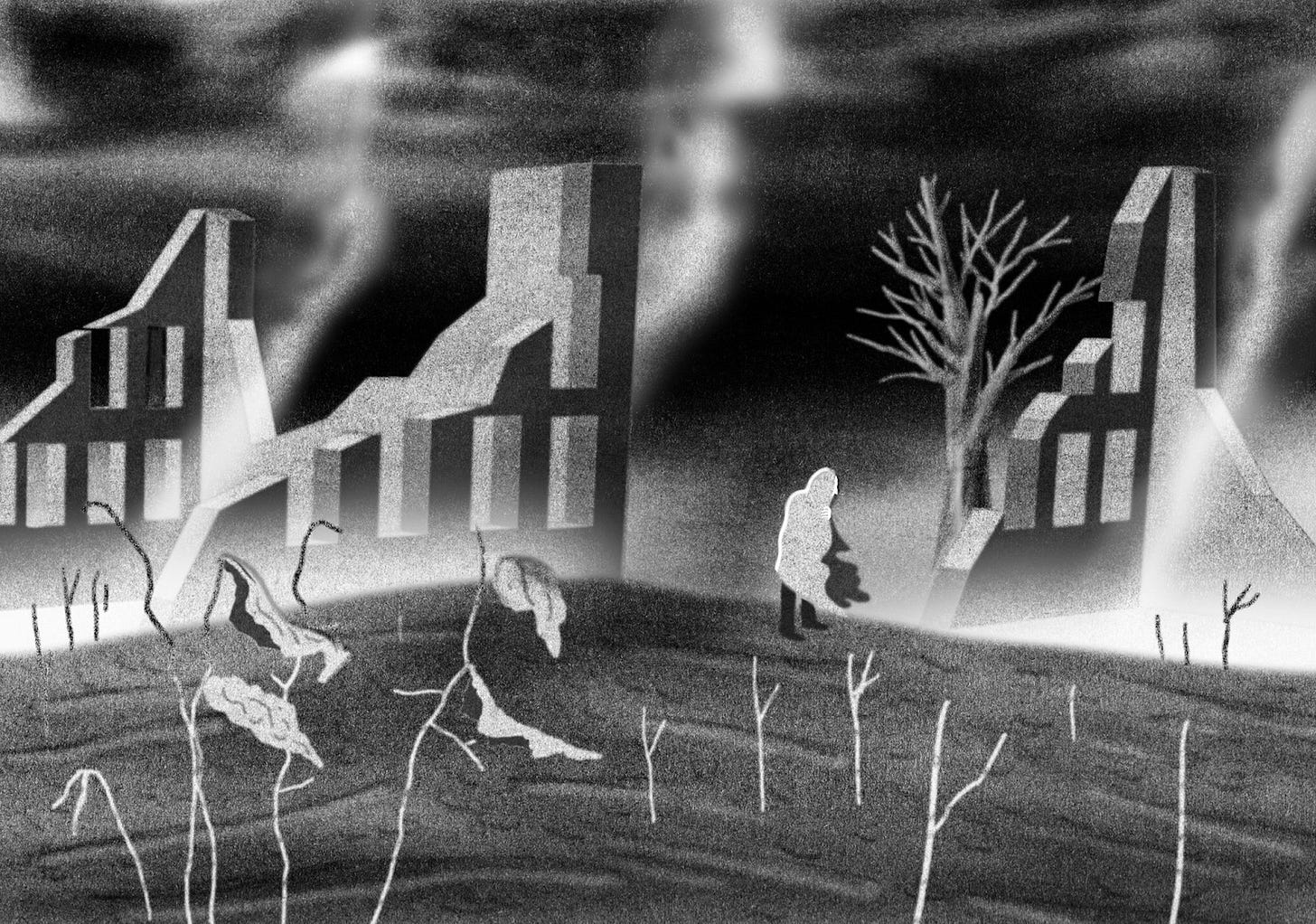Climate and population
Which trend wins?
Opinions about climate change have evolved during the last several decades. In the mid-twentieth century respectable scientists worried that the planet was getting colder. This concern sharpened in the 1980s as fears of nuclear war intensified; one scenario described a "nuclear winter" caused by dust kicked into the stratosphere by all the explosions.
By the early twenty-first century fears about climate change had solidified around global warming. Evidence and scientific models pointed toward a hotter planet with stronger storms. Cold snaps amid the warming were attributed to a derangement of the jet stream and other anomalies consequent to the overall warming.
Skeptics of climate change didn't disappear. Some simply denied that the warming was real or lasting. There had always been hot spells, they said. Those spells had always ended. This one would too.
Their argument grew less tenable as year after year registered in the top five or ten of hottest years ever. The skeptics gradually yielded on the fact of the warming, retreating to a contention that the warming was part of a natural cycle that had nothing to do with humans. The pre-human geological record showed eons of tropical temperatures around the globe. Perhaps we were entering another such phase.
As the climate models got better, this position too became less tenable. Some skeptics clung on, but the correlation between rising carbon dioxide levels in the atmosphere and rising temperatures cut deeply into the deniers' ranks.
Still they didn't surrender. Maybe the climate is warming, they said, and maybe the warming is anthropogenic. But efforts to moderate or reverse the warming won’t be cost effective.
At least not in the near term. To shift from fossil fuels to renewable energy sources will be expensive, they said. Mitigation efforts will crowd out worthier programs—in health care, education and the like. Moreover, technology improves with time. A dollar spent a decade from now will buy multiples of the mitigation a dollar spent today can.
This is where the argument currently rests. Most governments of the world have nominally sided with the advocates of swift mitigation, but few governments have put their promises into action. Average temperatures continue to rise, and they contribute to, among other things, Canadian wildfires whose smoke has shrouded American cities this summer.
Unless something changes dramatically, it's hard to predict substantial progress on the climate front. But something is changing dramatically—something that on its face has little to do with climate.
Women are having fewer children. In dozens of countries, populations are declining and will continue to do so. The United Nations estimates that Japan will lose 16 percent of its population by 2050, Ukraine 20 percent, Italy 10 percent, Poland 12 percent. China, with 1.4 billion people today, is expected to have fewer than 1 billion by 2080. India’s population is still growing but at a slower pace each decade. Likely it too will tip into decline before long.
Countries wrestling with climate change try hard to reduce their carbon footprint per person. More effective is to reduce the number of persons. Even if individuals continue on an unremediated course of carbon spewing, a nation's total carbon output will shrink if its population declines.
Predicting population growth or shrinkage generations into the future is an imprecise art at best. But if the world population does decline substantially, the climate problem will solve itself. Of course, a declining population will create other problems, starting with how to support old, retired folks with ever fewer young, working people.
The big question—aside from whether the world population actually diminishes—is whether it diminishes soon enough to curb the total growth in carbon emissions. On present trends, world population will continue to grow at least until the end of this century. Because most of this growth will take place in Africa, which has and will continue to have modest per capita carbon emissions compared to the richer world, the reduction in emissions from population decline will kick in before the world population as a whole begins to shrink. But that still might be too late to head off disastrous climate effects.
Yet it’s still something to keep in mind. If we don’t fry ourselves and our immediate descendants, our great-great-grandkids might have an easier time with climate. At the least, they’ll have more choice where to go to get out of the heat, because there will be fewer of them.


It seems that the question of the former is not a scientific one but a moral one. The latter a social one, but it may have Darwinian causal bases. I do not presently have a repeatable test protocol for this last claim in mind.